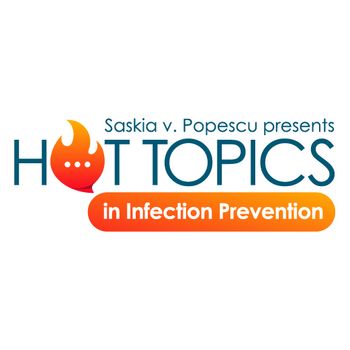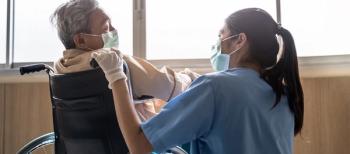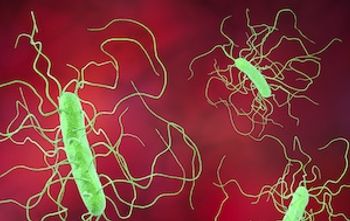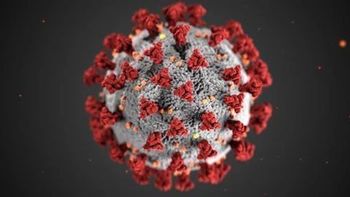
That the COVID-19 vaccines operate under emergency use authorization has been cited as the main reason for the vaccine hesitancy that could lead to a Delta variant surge in the United States.

That the COVID-19 vaccines operate under emergency use authorization has been cited as the main reason for the vaccine hesitancy that could lead to a Delta variant surge in the United States.

Heather Saunders MPH, RN, CIC: “I think [infection preventionists] really need to be aware of what the efforts are at their state health departments and how they can collaborate with those efforts. IPs need to also have their own surveillance systems in place. They need to know what they’re looking for.”

Take 5 minutes to catch up on Infection Control Today®’s highlights for the week ending July 9.

The Association for Professionals in Infection Control and Epidemiology received a grant under the CDC’s Project Firstline program to bolster IP educational opportunities.

This represents a “huge success” for providers who were able to deal with COVID-19 and other respiratory diseases properly, says one of the authors of the study.

The one-two punch of the Delta variant soaring, and COVID-19 vaccination rates stalling could put the United States in the crosshairs of another surge, medical experts fear.

Two obstacles that inhibit the use of face masks among health care professionals include concern about how’ll they’ll affect communication, and perceived discomfort. Attitudes improve greatly with use.

Federal health professionals will be sent to counties where vaccinations rates are lowest, and Delta variant infections are highest.

The makeup and application of surgical drapes hasn’t significantly changed in 50 years, a study states. Time for a new look?

In the new normal after COVID-19, infection preventionists will need to become more knowledgeable about and involved in the functionality of air ventilation in health care settings.

A group of 30 respected scientists argue that the Chinese government has stonewalled a thorough investigation into the origin of COVID-19. There should be consequences, they suggest.

Take 5 minutes to catch up on Infection Control Today®’s highlights for the week ending July 2.

The FDA revokes approval of some masks and decontamination methods that it had OK’d during the depths of the COVID-19 pandemic.

Wearers press a button on the mask and within 90 minutes are fed information about whether SARS-CoV-2 has been detected on a patient’s breath, says a study.

The primary organization representing the infection preventionists who often coordinate vaccination efforts at hospitals says that COVID-19 vaccines should be mandatory.

Tania Bubb, PhD, RN, CIC: “I think there are many heroes to celebrate, but specifically, because we’re talking about infection preventionists, I want to highlight the work that they have done, and the positions that they had to manage and the flexibility and the agility that they had to exhibit during the pandemic.”

While many infection preventionists are attending the annual APIC Conference, there’s been a lot going on in the world of COVID-19 and infectious diseases.

“IPs reported more empowerment, credibility and value to their facilities during the pandemic,” states a study unveiled today at the annual APIC conference.

An infection prevention and control department overseeing 28 hospitals created a manual that allowed infection preventions at all levels of experience to function optimally during the COVID-19 pandemic.

Almost half of nursing homes and assisted living facilities are operating at a loss, while 84% of nursing homes are losing revenue this year because fewer post-acute patients are coming to them from hospitals.

Elizabeth Jefferson, PhD, CIC: “You have to really pay attention and make sure that it [Candida auris] stays contained so that you don’t have an outbreak. It just takes one case.”

Infection preventionists and hospital administrators need to continue pushing for better hand hygiene compliance once health care workers stop worrying as much about their own safety, a study states.

In the midst of a COVID-19 surge, a hospital was able to limit the spread of Candida auris to the initially infected patient.

Holly Taylor, MPH, CIC: Using retired IPs can “create a little bit more bandwidth within the department when you have potentially prolonged vacancies because we do know that IP staffing vacancies last longer than other health care vacancies.”

Karen Jones MPH, RN, CIC: “It’s really key to have a good written infection prevention and control plan at the hospital level but then also at the nursing home level. And what keeps that up to date? It’s an infection preventionist who’s knowledgeable, who’s been educated, who’s been trained, who’s certified.”

A five-year survey in Michigan seeks to determine if enhanced relationships between nursing homes and hospitals might facilitate better infection prevention in nursing homes.

Barbara Smith, RN, BSN, MPA, CIC: “I think that we need to do a little bit more with the public in terms of antibiotic use in the community. So that they’re not at risk for C. diff for whatever reason later in their life.”

The infection prevention department at Ascension Texas managed to shore up IP ranks by calling a couple of IPs out of retirement and asking another if she would postpone her retirement during a COVID-19 surge.

The rates of Clostridioides difficile remained about the same in March, April, May of 2020 as they were during the same 3 months in 2019, according to the study.

Over 2 million people in England may be suffering from long COVID. That’s almost 4% of England’s population; 4% of the U.S. population would be over 13 million people.